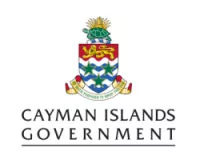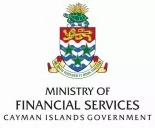- with readers working within the Securities & Investment industries
Calling it an 'immense improvement' that promotes and protects the interests of Caymanian lawyers while also addressing international compliance standards, Financial Services Minister Wayne Panton highlighted today's gazettal of the Legal Practitioners Bill, 2016, as a defining moment for the Cayman Islands.
'This bill has taken the better part of 15 years to accomplish', he said. 'I thank and congratulate both the Caymanian Bar Association and the Cayman Islands Law Society for their stellar efforts in helping this important legislation to come closer to passage than ever before'.
Referred to as the LPB, the bill will be debated during the October session of the Legislative Assembly.
In addition to its importance for legal practitioners, Minister Panton explained that the regulation of lawyers who practice Cayman law is vital to our country's reputation and ultimately, our economic success.
'The current 16-page law that regulates legal practitioners was enacted originally in 1969. Things have changed significantly since then', he noted.
'Today, the practice of Cayman law has become increasingly more sophisticated, complex and international and as such, the current law is woefully inadequate', Minister Panton said. 'The LPB represents an immense improvement and is appropriate for today's reality'.
Premier Hon. Alden McLaughlin said the bill has been an issue since he was president of the Caymanian Bar Association in 1999.
'At least four government administrations have tackled this legislation', said Mr McLaughlin. 'I know that the failure to pass this legislation has been damaging to us not only as a jurisdiction but also to the interests of Caymanian lawyers. I am therefore delighted that we will be able to present the bill to the Legislative Assembly at the upcoming meeting'.
The creation of the Cayman Islands Legal Practitioners Association (CILPA) is one of the bill's key features. CILPA would be a self-regulatory body of eight attorneys-at-law who are ordinarily resident in Cayman, and who practice Cayman Islands law in Cayman. At least five of these must be Caymanian and of those five, at least three must have qualified locally.
Once the bill has been passed in the LA, CILPA would have the responsibility to promote the qualification, training and development of Caymanians as attorneys; and ensure that non-Caymanian persons with foreign qualifications are suitably qualified to practice Cayman Islands law, Minister Panton said.
CILPA also will have the authority to compel law firms to comply with strict business staffing plans, including provisions to ensure that qualified Caymanian attorneys are properly considered for promotion inside and outside of Cayman.
Besides addressing longstanding issues for Caymanians, the 126-page bill includes provisions to address the Financial Action Task Force (FATF) Recommendations, which are part of the global regulatory standard for the financial services industry. In 2017, the Caribbean Financial Action Task Force (CFATF) will assess Cayman on its adherence to the FATF Recommendations.
'Passing the bill into law during the October sitting will allow the legal profession to demonstrate adherence to the FATF Recommendations, in order for the jurisdiction to achieve a satisfactory assessment against the international standards', Minister Panton said.
For the October LA sitting, the Ministry of Financial Services, the Ministry of Finance and the Attorney General's Chambers will all have bills before the Legislative Assembly that relate to the CFATF mutual evaluation process.
The complete list of CFATF-related bills, which are available at the Legislative Assembly and on the Cayman Islands Gazette website, is:
- The Legal Practitioners Bill, 2016
- Auditors Oversight (Amendment) Bill, 2016
- Companies Management (Amendment) Bill, 2016
- Customs (Amendment) Bill, 2016
- Monetary (Amendment) Bill, 2016
- Non-Profit Organisations Bill, 2016
- Police (Amendment) Bill, 2016
- Proliferation Financing (Prohibition) (Amendment) Bill, 2016
- Proceeds of Crime (Amendment) Bill, 2016
- Judicature (Amendment) Bill, 2016
- Penal Code (Amendment) Bill, 2016
- Criminal Procedure Code (Amendment) Bill, 2016
- Terrorism (Amendment) Bill, 2016
The content of this article is intended to provide a general guide to the subject matter. Specialist advice should be sought about your specific circumstances.


